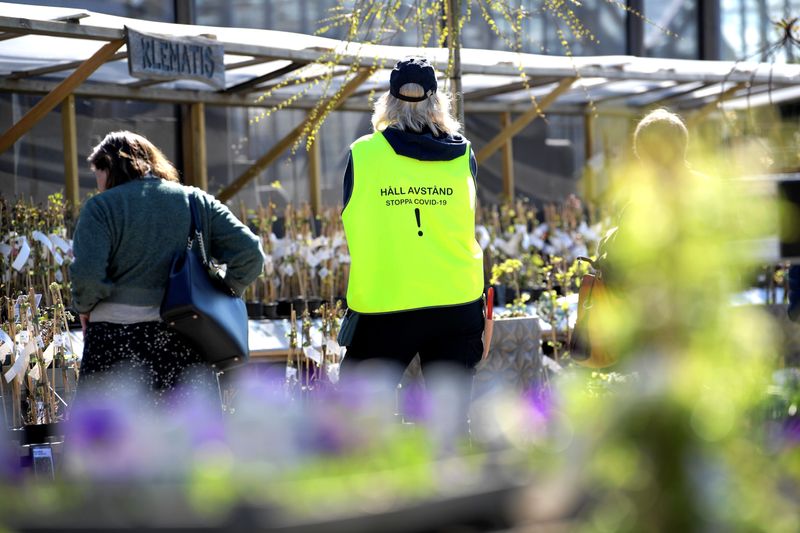STOCKHOLM (Reuters) – Around one-third of Stockholm’s 1 million people will have had the novel coronavirus by the start of May and the disease may have already passed its peak in the capital, Sweden’s public health agency said on Tuesday.
Stockholm accounts for around half of Sweden’s 15,300 confirmed cases of COVID-19, the respiratory disease caused by the virus, and a high proportion of its 1,765 deaths, including among very elderly people living in care homes.
The public health agency said its modelling suggested the rate of new infections in the city had peaked on April 15, although a decline was not yet evident from its data.
“Already a bit more than a week ago, the peak was reached, at least according to this model, and we can expect fewer cases each day,” Anders Wallensten, deputy state epidemiologist at the agency, told reporters at a daily news briefing.
Modelling using data from random testing and cases reported to hospitals showed that around one-third of Stockholm’s population will have contracted the coronavirus by May 1.
“But you also have to remember … that two-thirds have not been infected and can still get it,” Wallensten added.
Wallensten said it was too early to say when the number of fatalities in Stockholm would start to decline.
“The curve for the number of new cases hasn’t started to decline yet, either, so we are not there yet,” he said.
Measures take by Sweden to stop the spread of the coronavirus have been less severe than in many other countries, relying on persuasion rather than prohibition.
Primary and secondary schools are still open, shoppers can still visit stores and children are playing sports outside.
While some countries are beginning to ease the most restrictive measures, Wallensten said it was too early for Sweden to change course.
“We are looking at when it will be possible to ease different restrictions and which will be eased first, but as we see it, we are on a plateau, the danger isn’t over,” he said.
He said that one advantage of Sweden’s relatively low-key strategy was that it could be maintained for longer.
“We are not such a hurry to do this kind of thing while they are in a different situation.”
(This story corrects to remove paragraph saying “The study estimated that for each case confirmed by the authorities, 999 milder cases were not recorded because people did not seek medical help” after Sweden’s Health Authority retracted that part of its statement, saying it was incorrect. Rest of text unchanged.)
(Reporting by Simon Johnson; Editing by Catherine Evans)


















